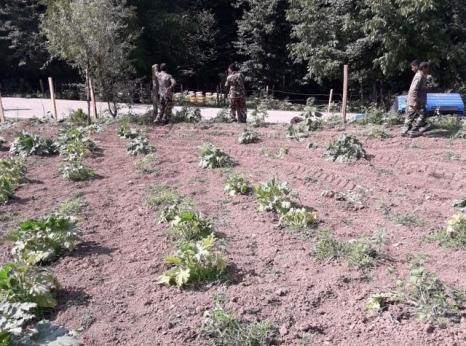Iran: Intensified Assault On Iran's Baha’i Minority

Of the 30 Baha’i individuals arbitrarily arrested by Ministry of intelligence officials since 31 July 2022, nine were subsequently released on heavy bail amounts and another nine were subjected to electronic ankle bracelets restricting their freedom of movement. The remaining 12 continue to be detained. The arrests were carried out in various cities including Ghazvin, Karaj, Mahshahr, Roshankouh, Sari, Shiraz, Tehran and Yazd. Those arrested on 31 July include prominent members of the Baha’i community and former prisoners of conscience Mahvash Sabet, Fariba Kamalabadi and Afif Naimi, who remain detained.
The names of the 26 Baha’i men and women in Shiraz who are at risk of unjust imprisonment after a court convicted them on charges related to their identity as Baha’i adherents are Saeed Hasani, Shadi Sadegh Aghdam, Shamim Akhlaghi, Sahba Farahbakhsh, Parisa Ruhizadegan, Esmail Rusta, Bahareh Norouzi, Behnam Azizpour, Samareh Ashnaie, Farbod Shadman, Farzad Shadman, Ramin Shirvani, Rezvan Yazdani, Soroush Iqani, Sahba Moslehi, Ahdieh Enayati, La’la Salehi, Mozhgan Gholampour, Marjan Gholampour, Maryam Eslami Mahdiabadi, Mahyar Sefidi Miandoab, Nabil Tahzeeb, Noushin Zanhari, Yekta Fahandej Saadi, Varga Kaviani and Nasim Kashaninejad.
According to state media, state entities involved in the demolitions of 2 August 2022 included the Office of the Prosecutor of Sari in Mazandaran province, the Ministry of Agricultural Jihad, the Natural Resources Organization, the Department of Justice, and the Law Enforcement Command of the Islamic Republic of Iran. According to victims interviewed by Amnesty International, for decades, the village of Roshankouh had around 70 Baha’i houses and less than 10 houses which are owned by Muslim families. In 2016, local authorities defined the boundaries of the village and ruled that over half of the 70 Baha’i houses were within protected landscapes belonging to the state, despite property deeds and aerials maps showing the contrary. Since then, the authorities have repeatedly denied building permits to families who own land within the village’s historic residential area and want to either construct new houses or renovate and extend their old derelict homes. The authorities have also refused to connect between 30 and 40 Baha’i homes to the gas network. In October 2020, local authorities marked as protected forests around 12 hectares of land, which sustained the livelihood of about eight Baha’i farmers, and erected a sign which warned that any cultivation of the lands concerned was banned and offenders would be prosecuted. In August 2021, the authorities demolished two Baha’i houses that were under construction. In November 2021, they confiscated about one hectare of land, which was the source of livelihood for two farming Baha’i families.
In a separate case, Branch 1 of the Revolutionary Court in Semnan issued a verdict on 30 January 2022 that approved a request by the Headquarters for the Execution of Imam Khomeini’s Order, an institute controlled by Iran’s Supreme Leader, to confiscate 18 properties in Semnan province, which belong to six Baha’is. The verdict, which has been reviewed by Amnesty International, justified the confiscation on grounds that the owners were prominent Baha’i figures who intended to sell or rent the properties to financially support “the unlawful organizational objectives … of the perverse Baha’i sect.” Branch 54 of the Appeal Court in Tehran province upheld the verdict on 25 June 2022. Over the past decade, local authorities in Semnan have forcibly closed at least 20 Baha’i stores, shut down and confiscated the equipment of two Baha’i manufacturing units and confiscated or blocked access to the lands of two Baha’i businesses involved in agriculture and animal faming.
For decades, Iranian authorities have laid unfounded accusations of espionage for Israel against members of the Baha’i community solely due to the fact the Baha’i World Centre is near Haifa in Israel, where the shrines of the founders of the Baha’i faith are located. Confiscation of Baha’i properties and forcible closure of Baha’i businesses are carried out pursuant to an official policy, adopted by the Supreme Revolutionary Cultural Council and approved by the Supreme Leader in 1991, which provides “regarding the Baha’i question … that the government’s dealings with them must be such that their progress and development are blocked”. The policy adds that individuals “shall be denied employment if they identify as Baha’is” and “denied any position of influence, such as in the educational sector.”